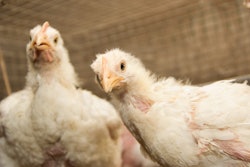
FSIS is inviting poultry slaughter and processing establishments to submit proposals for pilot projects that will test different control strategies for Salmonella contamination in poultry products. Pilot projects will last for a defined period of time, during which establishments will experiment with new or existing pathogen control and measurement strategies and share data collected during the pilots with FSIS. The data will be analyzed by FSIS to determine whether it supports changes to FSIS’ existing Salmonella control strategies.
On October 19, 2021, USDA announced that FSIS would be mobilizing a stronger and more comprehensive effort to reduce Salmonella illnesses associated with poultry products. A key component of this effort is identifying ways to incentivize use of preharvest controls to reduce Salmonella contamination coming into the slaughterhouse. In November 2021, FSIS held roundtable listening sessions with industry and consumer groups to answer questions about establishment pilot projects. FSIS is providing the following information on how establishments interested in participating in a pilot can submit a pilot proposal.
Who can submit a proposal?
FSIS will consider proposals from all active poultry establishments (or parent corporations) that produce raw products subject to FSIS’ Salmonella performance standards, regardless of the establishment’s Salmonella performance standard category in order to encourage all establishments to explore alternative approaches that will reduce Salmonella illnesses in consumers. Key partners such as breeders, live animal producers, and allied businesses (i.e., consultants, testing or intervention technology developers) are encouraged to assist in these projects, but the proposals must be received from poultry establishments under FSIS jurisdiction and authority.
What proposals would be of most interest to FSIS?
Proposals should consider new or existing control and measurement strategies for controlling Salmonella, before and/or after harvesting of live birds. Importantly, the proposal must describe: (1) how the strategy will be applied and monitored by the establishment; and (2) how the impact will be measured by the establishment.
Proposals may include evaluating strategies to reduce Salmonella in live birds or raw poultry products subject to the performance standards (chicken and turkey carcasses, chicken parts and comminuted chicken and turkey). These strategies may include testing/diversion, vaccination, prebiotics, probiotics, antimicrobials, phage, biosecurity, housing, density, environmental monitoring, litter, feed, and breeding. FSIS would also be interested in proposals to evaluate tracing of birds or flocks from preharvest to processing or communicating information about preharvest controls to processors that purchase raw poultry from slaughter facilities. Additionally, FSIS is interested in pilots that focus on alternative approaches to standard setting (e.g. performance or products standards) based on serotypes of public health concern, quantification, or genetic virulence factors. FSIS is not setting a limit on the duration of a pilot but is interested in short-term as well as longer-term pilots.
What information should be included in the proposal?
General: Title, participating establishment number(s), point(s) of contact, study duration.
Statement of Purpose: Include a detailed description of the pilot strategy, along with the rationale, objectives, and scientific/technical support.
Experimental Design: Provide detailed information about the general approach, including: the nature of the treatments, mode of application, operational parameters, number and name of participating establishment(s), and study time frame.
Monitoring and Evaluation: Describe how the strategy will be monitored and verified including measurable operating parameters, monitoring frequency, and sampling methods (including the method for mitigating carryover of antimicrobial residue). Include templates for collecting and sharing data. Describe procedures for records maintenance and availability.
Terms of Participation: Describe the conditions under which the establishment would agree to collaborate with FSIS, including data sharing, possibly through a third-party. Depending on the nature of the pilot, FSIS may provide alternatives to its Salmonella categorization and posting of establishments that agree to participate in a pilot. However, FSIS will continue to evaluate whether establishments meet the existing standards and take action at establishments that do not meet these standards. While FSIS may decide not to post categories of establishments participating in pilots; rather, FSIS may identify such establishments as pilot participants on the FSIS website. Alternatively, if establishments use FSIS’ Salmonella sampling and testing methods, FSIS may use establishment data to assess whether they meet the performance standards. The agency will develop an agreement that specifies the terms that establishments and FSIS will adhere to throughout the duration of the pilot. The parties reserve the right to suspend or cancel the pilot at any time.
How do I submit a proposed pilot?
Interested establishments can submit a proposal through the askFSIS New Technology queue using the subject line: “Pilot Proposal”. FSIS will log the request into its New Technology Monitoring System and issue a formal letter. An FSIS technical review team will evaluate the proposal and will follow up with questions if needed.

















